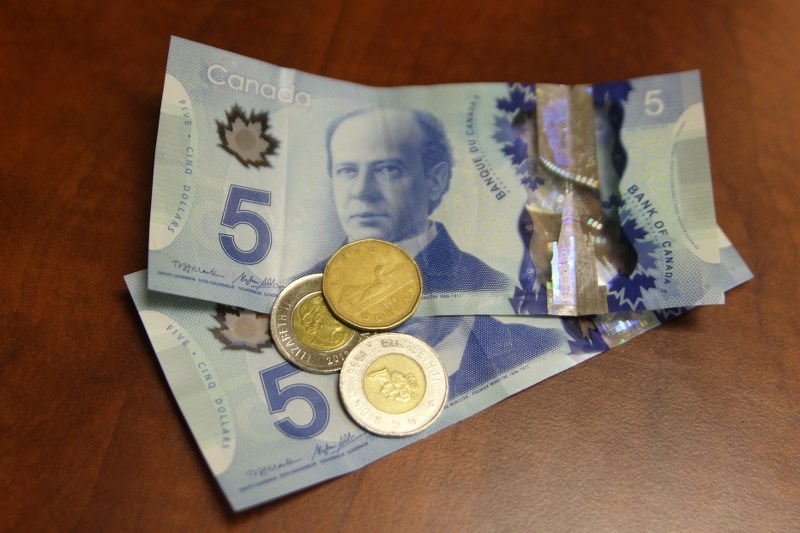The Government of Alberta is ready to discuss the minimum wage hike with employers and employees. Business owners and workers alike will have the opportunity to voice their opinions on the three-step NDP plan to raise minimum wage to $15 by 2018.
The Government of Alberta is ready to discuss the minimum wage hike with employers and employees.
Business owners and workers alike will have the opportunity to voice their opinions on the three-step NDP plan to raise minimum wage to $15 by 2018. The government will hold consultations focusing on future increases, meal and lodging deductions, and the phasing out of the differential liquor server rate.
"We're committed to bringing Alberta's general minimum wage up to $15 per hour to give lower-income Albertans the ability to support their families. We want to take the time to listen to the people directly involved and make sure we get this right," said Minister of Labour Christina Gray.
The proposed increase previously sparked tempers in local business owners. Many believe the wage increase will cost them too much, especially during the current recession.
"It needs to be done in a responsible and fair way," said Mr. Mikes restaurant owner Sal Naim. "Raising the minimum wage 50 per cent in what many are calling a depression here in Alberta, most small businesses (won't be able to) absorb such a high jump so quickly."
President of the Bonnyville and District Chamber of Commerce Tom Allan advocated that the legislation needs to be held until further notice.
"The timing of the wage increase is detrimental to the financial health of many businesses, which are already feeling negative impacts due to the current economic downturn," said Allan. "The legislation should be suspended until the economy improves and further consultations with businesses are completed."
Minimum wage has increased a dollar since the government introduced their plan. It went from $10.20 to $11.20 last October.
Executive Director for the Dove Centre Christi Neahr suggested the increase eliminated opportunities for youth employment. If a business can only hire one person for $15 per hour, instead of two people for $5 less, it will choose someone with experience in a working environment.
"I was making $3.25 at McDonald's as a 13-year-old. To me, being the same kid at McDonald's at $15, you're talking an increase that's five fold," said Neahr, remembering how much he enjoyed the social environment of his first job. "No wonder they've gone to nothing but machines, you don't even have tellers unless you have cash."
Neahr expects job losses across the community if the minimum wage continues to increase. It forces small businesses to keep up with large companies who can find alternative resources for employment.
"It's evident at $11.20 what's happening. People are being laid off right now, so how do employers justify $15 an hour. It's such a big leap," said Neahr.
Currently, 300,000 Albertans earn $15 per hour or less, 50 per cent of which are heads of their households. Almost 59,000 are workers who earn minimum wage. About 43 per cent of these workers work full time, 77 per cent of which are in permanent positions.
In certain cases, such as server jobs, making under $15 an hour does not mean the worker only makes $448 every standard workweek.
"The server wage is 50 cents lower than minimum wage. From a wage perspective, it's certainly that the hourly wage they make is less than half of what they would make in comparison to tips. A server is probably making $15 to $20 an hour," said Naim.
The hike has also been criticized for lacking consideration of those who currently make $15 an hour.
Critics suggest these workers will want their wages increased as well.
For Neahr, officials trying to raise the wage are trying to fix an issue that has nothing to do with the minimum wage.
"Minimum wage was not designed to be a living wage. It was implemented so people couldn't take advantage of child labour. It's transitory employment, it's starting employment," said Neahr. "If our society has come to the stage where minimum wage is supposed to be the living wage, they have to stop calling it a minimum wage. The fact that people have to get minimum wage jobs and use that as a living wage is indicative of larger problems."
He added, "They're addressing the wage, not the problem of getting the person (using minimum wage to survive) out of the problem they are in. The fact that a person finds themselves in that position is not a determination on them, but the situation they're in."
Naim can't see the minimum wage as a good thing for the community.
"My prices would go up, jobs would be cut, and I'd have a smaller business for sure," said Naim.
